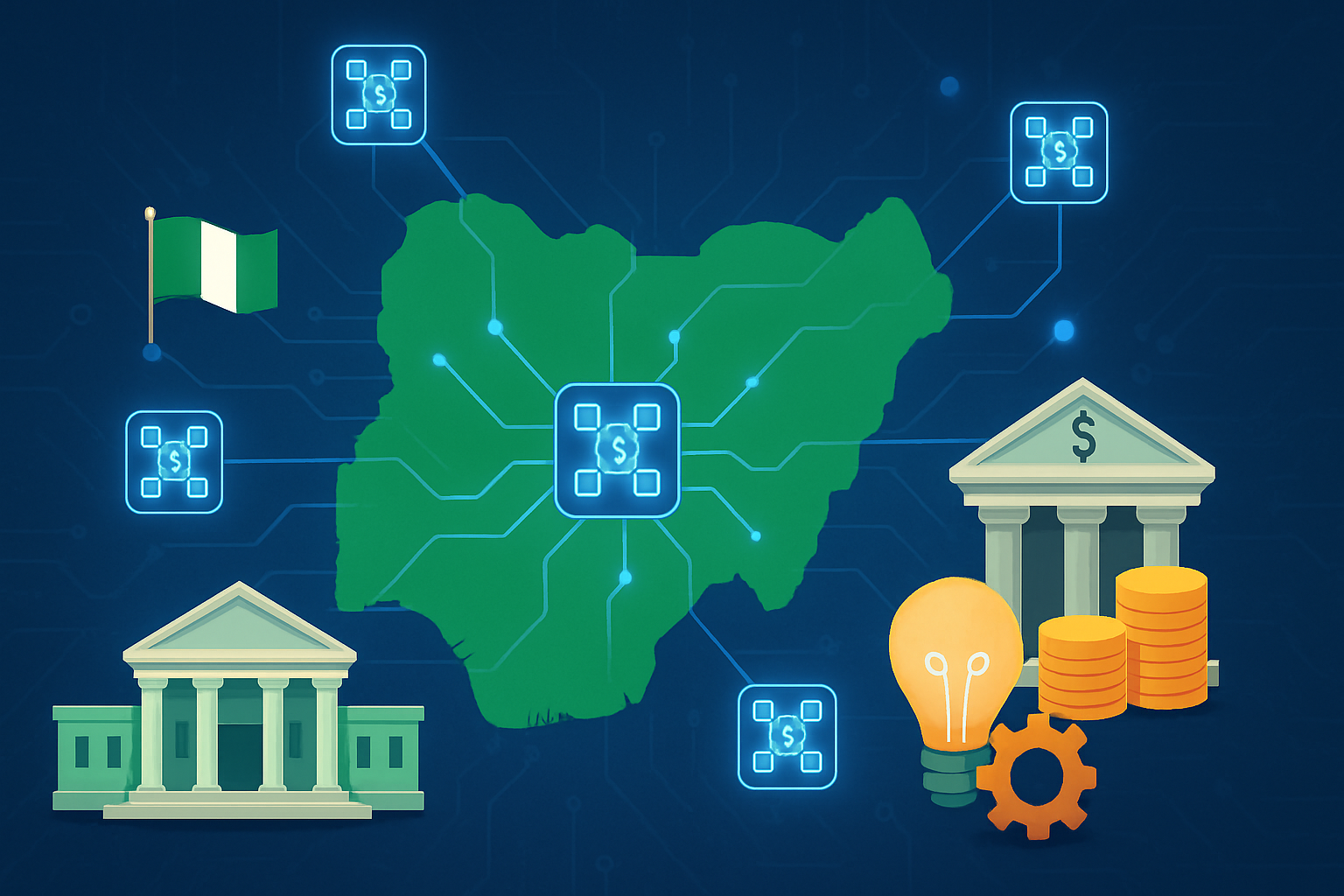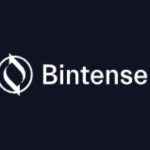NFT & Blockchain
Nigeria’s Blockchain Revolution: National Blueprint To Transform Governance, Finance And Innovation

Introduction
Nigeria, Africa’s most populous nation and its largest economy, has embarked on an ambitious journey to embed blockchain technology into its national digital framework. On May 21, 2025, the Federal Ministry of Communications, Innovation, and Digital Economy unveiled a groundbreaking blueprint designed to harness blockchain’s transformative power across multiple sectors.
This initiative marks a significant pivot from isolated experiments to structured national adoption — integrating blockchain to foster financial inclusion, improve public transparency, and accelerate digital innovation.
Understanding The Blueprint: Policy Pillars And Strategic Objectives
At the heart of Nigeria’s blockchain adoption strategy is the National Blockchain Policy, a comprehensive document crafted through public-private collaboration. The policy outlines both short-term and long-term objectives, addressing infrastructure needs, legal reforms, talent development, and regulatory clarity.
Key Objectives of the Policy Include
- Establishing a trusted digital identity framework using blockchain.
- Promoting blockchain use in healthcare, supply chains, land registry, and voting systems.
- Encouraging startups and SMEs to adopt decentralized systems.
- Strengthening the local blockchain developer ecosystem.
- Setting interoperability standards across public and private applications.
The roadmap is expected to foster a decentralized, transparent infrastructure that enhances governance, commerce, and public trust.
Government’s Role: Enabler, Not Controller
Contrary to fears that government involvement may stifle innovation, the Nigerian government aims to act as a facilitator rather than a regulator-first entity. According to officials at the launch, the ministry will provide infrastructure support, policy guidance, and international collaboration frameworks, allowing innovators and private enterprises to lead development.
Nigeria’s Blockchain Policy Advisory Council, composed of industry stakeholders, will oversee implementation, ensure compliance, and periodically review results to refine strategy.
Blockchain In Public Services: Transparency As A Cornerstone
One of the most compelling elements of Nigeria’s blockchain policy is the push for public sector adoption. The plan envisions blockchain-based solutions for:
- Property ownership and land titles, minimizing disputes.
- Digitized health records with patient-controlled access.
- Educational certificate verification, combating fake qualifications.
- Public procurement and budget tracking, reducing corruption.
By decentralizing public records and eliminating data silos, the government hopes to build a transparent digital society that is less prone to fraud and manipulation.
Financial Inclusion: Blockchain For The Unbanked
Nigeria has one of the highest rates of unbanked adults in Africa. Despite rapid digital growth, millions lack access to formal financial systems. The new blueprint recognizes blockchain’s ability to bypass traditional barriers by enabling:
- Peer-to-peer transactions without intermediaries.
- Programmable financial products for microloans and savings.
- Crypto-powered remittances, which reduce costs and delays.
This initiative is particularly critical in Nigeria’s rural areas where traditional banking infrastructure is weak. By promoting blockchain wallets and decentralized finance (DeFi) tools, the government aims to democratize financial access.
Regulatory Landscape: A Shift From Censorship To Clarity
For years, Nigeria’s blockchain and crypto sectors have suffered from regulatory ambiguity, with outright bans on crypto transactions and fintech-hostile banking policies. However, recent developments signal a shift in perspective.
Notable Changes:
- Securities and Exchange Commission (SEC) Nigeria has released new guidelines to license crypto and blockchain companies.
- The National Information Technology Development Agency (NITDA) is tasked with overseeing blockchain infrastructure development.
- The Central Bank of Nigeria (CBN) is reportedly reviewing policies on digital asset custody and cross-border use cases.
- This more open and adaptive framework is likely to stimulate foreign direct investment and encourage local ventures to operate above board.
Education And Capacity Building: Cultivating A Blockchain-Ready Workforce
The success of Nigeria’s blockchain strategy depends not just on policy but on people. Recognizing this, the blueprint invests heavily in human capital development. Plans are underway to:
- Launch certified blockchain training programs across universities and technical institutions.
- Partner with global blockchain academies for curriculum support.
- Create bootcamps and hackathons to support innovation.
- Offer blockchain career pathways to boost employment.
The goal is to position Nigeria as a global talent hub for blockchain developers, engineers, and protocol designers.
Private Sector Partnerships: Collaboration For Scale
Several private blockchain firms have already expressed interest in supporting the government’s strategy. Notably:
- Algorand Foundation is collaborating with Nigerian startups to deploy low-cost Layer-1 solutions.
- Local firm Zone is working with banks to integrate blockchain-based payment rails.
- Global players like IBM Blockchain and ConsenSys have offered advisory roles for public integration.
- The synergy between startups, global tech providers, and regulatory bodies is creating a uniquely collaborative ecosystem.
Comparative Insight: Nigeria And The Global Blockchain Race
Nigeria is not alone in the blockchain revolution. Countries like Estonia, Singapore, and South Korea have already deployed blockchain at scale for identity, voting, and finance. However, Nigeria stands out due to:
- Its youthful tech-savvy population.
- Widespread mobile adoption.
- High remittance flows and crypto usage.
In 2024, Nigeria ranked #2 in Chainalysis’ Global Crypto Adoption Index — a sign of untapped blockchain readiness. By formally embracing the technology through policy, Nigeria seeks to turn organic grassroots innovation into institutional momentum.
Challenges Ahead: Infrastructure, Trust And Political Will
While the blueprint is ambitious, several challenges remain:
- Electricity and internet access gaps in rural areas.
- Cybersecurity risks, especially in decentralized finance.
- Mistrust in government, stemming from years of digital policy reversals.
- Resistance from legacy financial institutions.
The roadmap addresses many of these concerns, but effective implementation will be the real test. The policy’s success will depend on sustained political will, transparent audits, and the ability to pivot based on evolving global standards.
Conclusion
Nigeria’s blockchain adoption blueprint marks a pivotal moment in the country’s digital evolution. From empowering citizens with digital identities to transforming financial systems, this policy has the potential to serve as a model for emerging markets. By blending visionary policy, grassroots adoption, and international collaboration, Nigeria is not just catching up—it is setting the pace for blockchain leadership in Africa.
As the country begins to implement the blueprint, all eyes will be on how theory translates into impact. If executed well, Nigeria could not only unlock its digital economy but inspire a continental movement toward blockchain-driven governance and inclusion.











